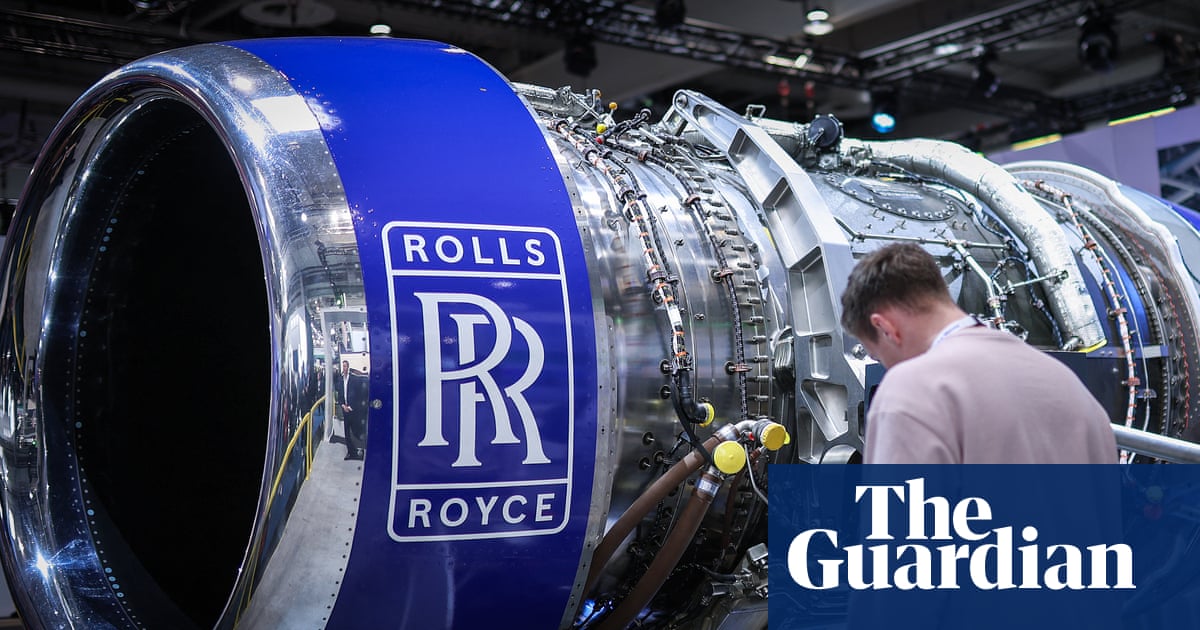British Plane Parts to Become Tariff-Free in U.S. Trade Deal
Recent reports indicate a significant development in the ongoing trade negotiations between the UK and the U.S., specifically regarding the aerospace sector. British aircraft parts, notably engines manufactured by Rolls-Royce, are set to be exempt from U.S. import tariffs. This exemption, as part of a broader economic prosperity deal with the Trump administration, could pave the way for enhanced trade relations between the two nations.
The Trade Deal Announcement
Howard Lutnick, the U.S. Commerce Secretary, announced that specific products, including engines from renowned British manufacturer Rolls-Royce, would enter the U.S. market tariff-free. While this was emphasized in public statements, the official documentation released during the deal’s announcement lacked detailed references to this exemption. The five-page document outlining the agreement highlighted broader economic themes but did not delve into the specifics of aerospace trade.
Significance for the UK Aerospace Industry
This tariff exemption is crucial for the UK’s aerospace industry, a vital sector bolstering the country’s economy. It supports approximately 450,000 jobs and contributes around £40 billion annually. Jonathan Reynolds, the UK’s Business Secretary, expressed optimism, stating that the deal guarantees zero tariffs for the aerospace sector specifically, thus ensuring the industry’s stability and growth.
Importance for U.S. Manufacturers
The deal is equally beneficial for U.S. manufacturers. Boeing, the American aerospace giant, imports Rolls-Royce engines for its commercial jets. Additionally, U.S. repair and maintenance facilities rely on a steady supply of parts from British manufacturers. The trade agreement not only helps secure jobs and growth in the UK but also ensures a reliable supply chain for U.S. companies that depend on these critical components.
Boeing Aircraft Purchase
In a noteworthy development connected to the trade discussions, British Airways’ parent company, International Airlines Group (IAG), confirmed the purchase of $10 billion (£7.5 billion) worth of Boeing aircraft. This significant deal underscores the interconnected nature of the aerospace industry across the Atlantic, highlighting the ongoing collaboration and mutual benefits enjoyed by both countries’ manufacturers.
Broader Context of the Trade Agreement
The aerospace deal emerges against the backdrop of previous arrangements that have sought to alleviate tariff burdens on both sides. Recently negotiated terms offered relief for the automotive and steel industries, aiming to prevent potential job losses that would stem from high tariffs. For instance, car tariffs could drop from 27.5% to 10% for at least 100,000 vehicles, while steel tariffs may see reductions to zero.
Peter Mandelson, Britain’s ambassador to the U.S., noted that the agreement on car exports had immediate positive effects, such as preventing job losses at Jaguar Land Rover in the West Midlands. The importance of this aerospace deal is thus compounded by its potential to stabilize jobs and promote sustained economic growth.
Negotiating Car Exports
As the details of the deal continue to unfold, both Reynolds and Prime Minister Keir Starmer have expressed interest in raising the quota on British-made car exports beyond the initially agreed figure of 100,000. Such moves are aimed at ensuring that British manufacturers retain competitiveness in the U.S. market without the constraints imposed by tariffs.
Investigations and Future Concerns
It is worth noting that the U.S. commenced an investigation into whether imported aircraft, engines, and parts threaten national security on May 1. This examination reflects concerns regarding the concentration of U.S. imports from a few suppliers and the implications of foreign government subsidies. The investigation raised fears about potential future tariffs, but the aerospace and aviation industry has actively lobbied for the preservation of a long-standing treaty allowing for duty-free trade across borders.
Industry Advocacy
The industry’s push to protect existing agreements highlights the critical role that companies like Rolls-Royce and Boeing play in international trade dynamics. As negotiations progress, companies in both regions are keen on ensuring that the economic prosperity deal provides a stable framework for future growth and cooperation, benefiting both British and American workers and businesses.
As the final terms of the deal are still being finalized, the landscape of U.S.-UK trade in the aerospace sector remains dynamic and highly impactful, promising opportunities for both nations in a continuously evolving global economy.


